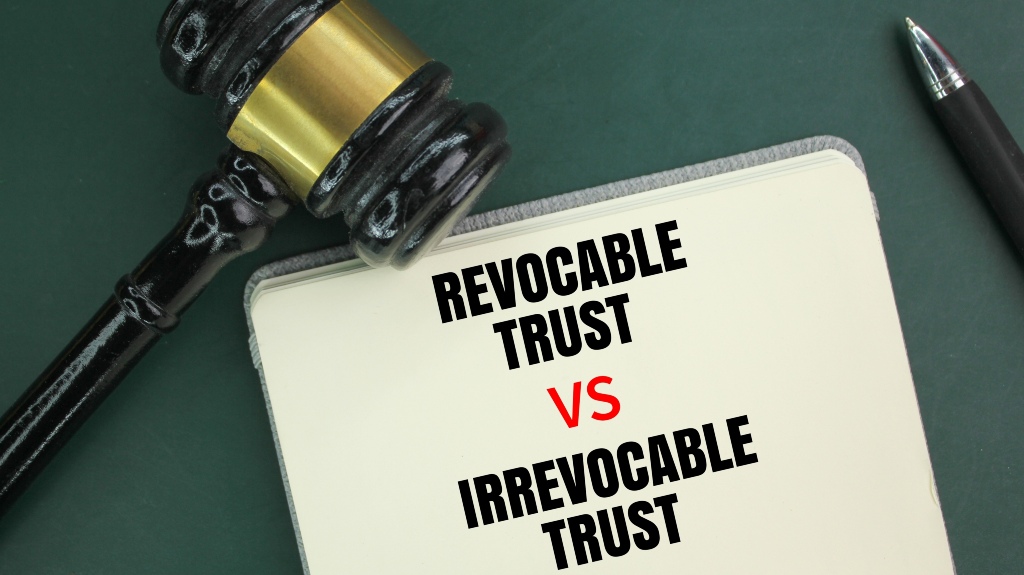
Trusts are a powerful legal and financial tool commonly used in Missouri estate planning. When assets are placed into a trust, they are no longer considered part of the trust creator’s estate, thus providing a smooth and private transfer of property to their heirs or designated beneficiaries. One of the most important distinctions in estate planning is whether a trust is revocable or irrevocable. Continue reading to earn more about the difference between revocable and irrevocable trusts in Missouri.
Trusts in Missouri
The Missouri Uniform Trust Code controls the rules for the creation of trusts in Missouri. In a trust, the trustee is a fiduciary who holds legal title to assets for the beneficiary’s benefit and is legally obligated to manage the assets responsibly, ensuring they are safeguarded, invested, and administered according to the trust’s terms. A trust can be revocable or irrevocable. A revocable trust can be changed or canceled by the person who created it while they are still alive. An irrevocable trust, however, can’t be changed once it’s created. Both trusts offer their own pros and cons. If you are planning to create a trust, always consult with an experienced Missouri estate planning attorney.
Revocable Trusts in Missouri- Pros and Cons
A revocable trust, or revocable living trust, is an estate planning tool that allows the grantor to have full control over the trust and its assets during their lifetime. It offers flexibility as the grantor can change, update, or revoke the trust at any time. After the grantor passes away, the trust becomes irrevocable and it can no longer be changed. A revocable trust helps avoid probate but still allows the grantor to adjust the trust as circumstances change.
Another benefit of a revocable trust is that it provides clear plan for managing assets if the grantor even becomes incapacitated. This can help avoid guardianship proceedings, as the family of the grantor will not have to go to court to establish a guardian. Instead, a successor trustee who is already pre-appointed in the trust will assume control of the trust, ensuring a smooth transition and continued management without legal delays.
While a revocable trust offers several benefits, it also has some limitations. As the grantor retains control over the trust’s assets, a revocable trust will not protect assets from creditors or lawsuits, and the assets are still considered part of their taxable estate. Additionally, a revocable trust won’t help with qualifying for government benefits like Medicaid or Social Security Disability, as these programs have strict asset limits.
Irrevocable Trusts in Missouri- Pros and Cons
An irrevocable trust cannot be changed, modified, or revoked after it is created, unlike a revocable trust. When a grantor transfers assets into this type of trust, they relinquish ownership and control of those assets. The trustee takes over the responsibility of managing the trust and its assets according to the terms set by the grantor.

As the grantor no longer owns or controls assets after they are transferred to the trust, they are no longer part of their taxable estate. This can lead to tax savings, and the assets are not subject to estate taxes upon the grantor’s death. An irrevocable trust also can protect assets from creditors, debt collections, and eligibility issues for government programs like Medicaid or Social Security Disability. However, the main con of an irrevocable trust is the loss of control over the assets. Once established, the grantor cannot alter the trust or move assets. Additionally, income generated by the trust may be subject to taxes, and a separate tax return must be filed for the trust. The trust’s income may be taxed at a higher rate, but distributing assets to beneficiaries strategically could potentially help lower the tax burden. As such, always discuss the tax implications with your estate planning attorney.
Contact Mark Harford Law to Find the Right Trust for Your Missouri Estate Planning Needs
Choosing the right type of trust—revocable or irrevocable—is essential to protecting your assets and achieving your estate planning goals. Each type of trust offers unique pro and cons, and the right choice depends on your individual needs. At Mark Harford Law, our experienced team has extensive experience guiding clients through the process of creating trusts and trust litigation. Let us help you navigate your options with confidence. Contact us today to schedule a free consultation.

